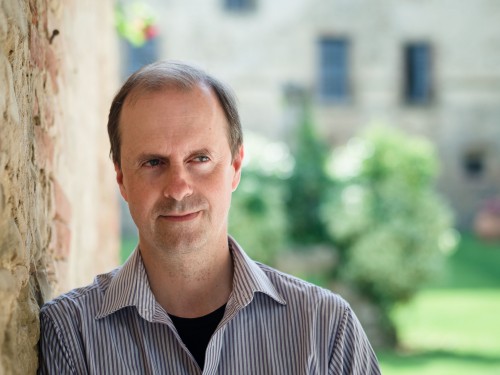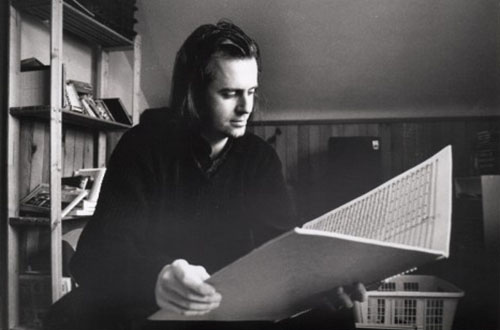I received a memorable phone call early this past June – one that surprised and delighted me. It was from the Chancellery of Honours, informing me of my appointment as a Member of the Order of Canada.
The citation that came with the appointment spoke to the decades of commissioning, producing and broadcasting the work of Canada’s composers during my 40 years as a member of CBC Radio Music. Regular readers of The WholeNote will know that I have recounted various important episodes of this history in these pages over the past two years. But the honour of being formally recognized for this work now has me looking back through a slightly different lens, focusing
on the circumstances that made possible a mission as seemingly rarefied as supporting composition in Canada.
The answer? Public broadcasting.
At rock bottom, the difference between public radio and commercial radio is that commercial radio delivers audiences to advertisers, while public radio, on the contrary, enriches the audience with content of value. This basic difference remains today, even with the encroachment of the internet and social media. This difference was already clear in my mind when I arrived at the CBC Radio Music department in 1973, ready and eager to produce original musical content for the network. John Peter Lee Roberts, the man who hired me after I finished my Master of Music degree in composition and electronic music at the University of Toronto, had already laid the groundwork. He had been the head of the national radio music department of the CBC since 1965 and had built a strong music department that was content-driven, always focused on delivering an enriched, high-quality music service to Canadian listeners. He believed that commissioning original Canadian works was at the core of the CBC’s mission: in his ten years as Head of Music at CBC Radio, he commissioned about 150 works, many now recognized as Canadian classics, such as Harry Somers’ famous Gloria. Such creative leadership could only be undertaken under the mandate of public broadcasting.
1973, the year of my arrival, was also the year Roberts, together with the Canada Council, created the National Radio Competition for Young Composers – a scheme to identify emerging Canadian composers and to highlight their work in broadcasts for Canadian listeners. It was also a way of encouraging and eventually developing young composers into mature artists, whose works would form the content of future contemporary music programming. Roberts turned the administration of the competition over to me in 1975, as he was leaving the Radio Music department. The CBC/Radio-Canada National Competition for Young Composers ran every second year until 2003, and introduced some 165 winning composers to Canadian audiences.
The responsibility of organizing this national competition was the first of three opportunities in the period from 1975 to 1978 that enabled me to begin my work developing Canadian composers at CBC Radio. The second was when I was named CBC Radio’s delegate to the International Rostrum of Composers (IRC) in 1977. The IRC is a new music meet-up that takes place every year, organized by the International Music Council, with the participating public radio services of some 35 countries. Serving as CBC’s delegate gave me an outlet to present the works of Canadian composers we had produced at CBC, as well as providing access to new works from around the world for broadcast in Canada. And the third key opportunity was the creation of a new CBC network program that would serve as the platform for the original content we were about to begin producing in earnest. This program was Two New Hours, which launched on New Year’s Day, 1978.
January 1978 was a new beginning: for the next nearly 30 years, we had a national network program that brought Canadians a window on new music creation by Canadian and international composers. The IRC, together with another international exchange mechanism, the European Broadcasting Union (EBU), gave us the means to exchange high quality productions of the most fascinating new works being created around the world, and a means of telling the rest of the world about Canadian music. And the National Radio Competition for Young Composers provided a means to invest in the development of emerging young Canadian composers, creating the newest of new music for current and future broadcasts.
The clearest example for me of how all these initiatives worked together successfully is the case of composer Chris Paul Harman. In 1990, the 19-year-old Harman became the only teenaged Grand Prize winner of the CBC/Radio-Canada young composers competition. Our recording of his winning composition, Iridescence for string orchestra, was submitted to the IRC the following year. The international delegates of the IRC voted Harman’s Iridescence the best work by a composer under the age of 30. The work was broadcast in 35 countries as a result. Iridescence was subsequently performed the following year by the CBC Radio Orchestra, the Esprit Orchestra and the Winnipeg Symphony Orchestra, and broadcast on Two New Hours as well as other CBC Radio music programs. By 1992, Harman was already an internationally recognized composer, not to mention a celebrity within the Canadian music community.
As his career grew, CBC Radio continued to follow and assist Harman’s development with commissions and broadcasts. Most of the major musical institutions in Canada have now performed his works; he has taken his place among the most respected composers in Canada. Along the way, he won the Jules Léger Prize twice: once (2001) for his work Amerika, which was also shortlisted for the Fondation Prince Pierre de Monaco Prize; and a second time (2007) for his work Postludio a rovescio, commissioned by the Nieuw Ensemble of Amsterdam. Harman is currently Associate Professor of composition at the Schulich School of Music at McGill University; more about that a little further on.)

The list of emerging Canadian composers who also benefited in a similar way from the coupling and coordination of these three initiatives is considerable: it includes Brian Current, Paul Frehner, Analia Llugdar, Kelly-Marie Murphy, Ana Sokolović, Andrew Staniland and many, many others. The opportunities provided through CBC Radio to encourage these composers over several decades helped Canadian composition to flourish; it was certainly a key factor in my recent Order of Canada citation.
That being said, my focus over 40 years at CBC Radio Music was not exclusively on the development of emerging composers. Established composers played an enormous role in the creation of original content for our broadcasts. Norma Beecroft, Brian Cherney, Murray Schafer and John Weinzweig were among the first composers commissioned for Two New Hours. And I presented Cherney and Schafer at the IRC during my earliest years as CBC’s delegate. Harry Freedman, Harry Somers and Ann Southam also figured prominently in our program mix. Some of these composers’ most well-known, perhaps even iconic works, were commissions produced for our broadcasts. These include Beecroft’s Piece for Bob, Freedman’s Borealis, Schafer’s Third String Quartet and Dance of the Blind by Marjan Mozetich. Speaking about the commission of his String Trio, Cherney says: “I knew the piece had to be damn good and interesting but it sort of developed more sophistication and complexity as it went along in the creative process. I think that one could say that the commission itself made me feel that I had to be as creative and imaginative as possible, so I tried to be just that.” He then went one step further: “I should say that all of my CBC commissions inspired me to write what I consider to be my best pieces – the String Trio, the Third String Quartet, Illuminations, La Princesse lointaine.”
Over the course of nearly 30 years of producing Two New Hours broadcasts, I commissioned about 250 new Canadian compositions. Several of these works served as vehicles for emerging young performers, like Alexina Louie’s Refuge, written for the young percussionist Beverley Johnston, or Ann Southam’s Qualities of Consonance for the emerging young piano soloist, Eve Egoyan. Mozetich’s Dance of the Blind was commissioned as a showcase for the emerging accordion virtuoso Joseph Petric. The last of these was seminal for Mozetich: with it came his decision to write in an accessible, tonal style, counter to the modernist trend at the time. This stylistic pivot made Mozetich one of the most successful of Canadian composers. Best of all, these sorts of radio commissions initiated collaborations between Canada’s best composing talent and the best performers. In the context of our nationwide network broadcasts, these collaborations helped to shape the musical community and the sound of Canada’s new music.
1991 saw the birth of another significant creative collaboration. Winnipeg Symphony Orchestra music director Bramwell Tovey, composer-in-residence Glenn Buhr and the late executive director Max Tapper contacted me to ask whether Two New Hours would broadcast music from the contemporary music festival they were planning. I saw this as an exciting opportunity and immediately promised that, not only would we broadcast as many concerts from their festival as the Two New Hours budget could afford, but would also contribute an event which we would create, produce and broadcast live, to show our support for the WSO’s innovative programming approach.
As a result, on Sunday night, January 19, 1992, Two New Hours presented a contemporary piano recital by Christina Petrowska Quilico, live on CBC Radio Two, from the Centennial Concert Hall in Winnipeg. The recital included music by Canadians Omar Daniel, Steven Gellman, Peter Paul Koprowski, Sid Robinovitch and Ann Southam, plus acclaimed international composers Frederic Rzewski and Toru Takemitsu. The WSO’s production team, not sure how best to market a recitalist in their 2,500-seat hall, decided to put up risers on the stage, as the main seating area, in case the attendance was small. Those 700 riser seats filled quickly, and the WSO’s management team watched in amazement as another 1,000 people then took “overflow” seats in the main section of the hall. It was clear from that moment that the New Music Festival would be a great success. By the next year, the WSO’s New Music Festival could already call itself an international festival, thanks to the worldwide distribution of our CBC Radio broadcasts over the program exchange protocol managed by the European Broadcasting Union. The WSO’s New Music Festival was copied soon after by orchestras in Vancouver, Toronto, Montreal, Edmonton and other communities, many of which were also heard on Two New Hours broadcasts.
The success of these various new music festivals in turn helped to swell the audience numbers for Two New Hours. By the time the program was cancelled, in March of 2007, the show had grown to an audience share of four percent as measured by the Bureau of Broadcast Measurement (BBM), an unthinkable figure for this sort of contemporary music show. To put the number in context, in 1980, when Two New Hours reached a one percent share, network senior managers had crowed about the achievement when defending the CBC Radio broadcast licence.
The CBC/Radio-Canada National Competition for Young Composers ended in 2003, but was revived, briefly, as the Evolution Young Composers Competition in 2006. After that CBC/Radio-Canada withdrew from this sort of activity, despite its proven effectiveness to develop emerging Canadian composers.
It was not the only area in which the CBC’s public radio mandate was drastically redefined. But that was, and remains, little consolation.
Before his death in 2016, the late Graham Sommer, a distinguished Canadian radiologist and medical researcher who believed in the transformative power of music, chose to endow the Schulich School of Music at McGill University to create a national competition for young Canadian composers. I was asked to consult on the project, based on my experience with the CBC/Radio-Canada competition. The finals of the Inaugural Graham Sommer Competition for Young Composers will be held at Pollack Hall in the Schulich School of Music on Saturday, September 29, 2018. The performances of the works of five young Canadian composers will be heard in concert and webcast. The webcast will be available on the Schulich school’s YouTube page: youtube.com/user/schulichmusic.
The five young Canadian composers who have written piano quintets for the Graham Sommer competition are: Ashkan Behzadi, Taylor Brook, Christopher Goddard, Alison Yun-Fei Jiang and Thierry Tidrow. Prizes totalling $45,000 will be determined by an international jury.
Canada is as rich in composing talent, as it was in January 1978. Continuing to develop these young composers is an ongoing investment in the nation’s musical future. The question is, what exists today to fill the role CBC Radio played in supplying a context for this to happen?

David Jaeger is a composer, producer and broadcaster based in Toronto.
